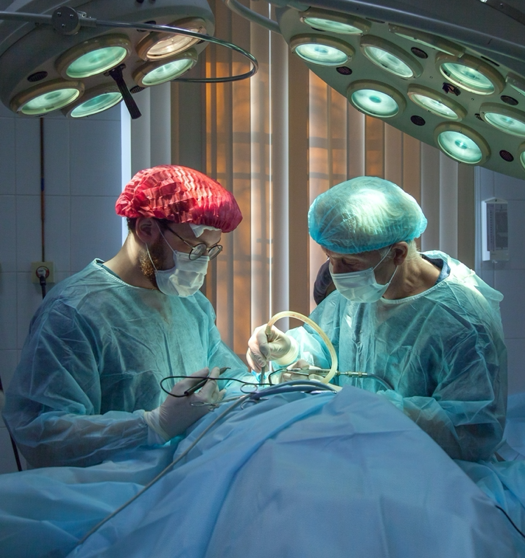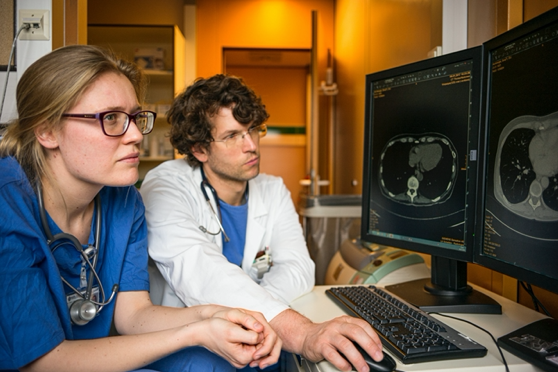CALL TODAY 646-846-1136 | EMAIL
Types of Hernias: Ventral Hernia
What is a ventral hernia? Hernias can occur in any part of your body. Each different type of hernia gets its name depending on where it occurs. In its true nature, a hernia refers to a condition in which the internal muscle tissue weakens or becomes thin. In this case, the abdominal or whichever muscle cavity resting on that body protrudes outwards since the muscle is no longer holding it in place.
What is a Ventral Hernia?
A ventral hernia is a condition that occurs in the abdominal areas. It is just like any other abdominal hernia. Instead, it consists of a bulge of tissues pushing out from an opening of a weak muscular wall or scar tissue. This type of hernia can occur in any part of the stomach region.
People call abdominal hernias incisional hernia when it occurs on the healed incisions of past surgery. In this case, the abdominal regions tend to weaken because of the surgical incisions on the stomach. Due to this, the stomach tissues can bulge outwards and cause a lump in the area where the surgeons performed incisions.
Ventral Hernias can also become life-threatening due to strangulation. When a ventral hernia is strangulated, the blood stops entering into the protruding tissues. This is a serious sign of worry for the patient. In this scenario, the patients require urgent treatment in the form of surgery. Plus, in the case of strangulated ventral hernia, you cannot push it back because it gets stuck to the abdominal wall opening.
Causes
The most frequent cause of the ventral hernia is a post-surgical muscle weakening. After abdominal surgery, the incisions on your stomach tend to make your muscle linings weaker. Most of the time, people start to develop scar tissue in the abdominal region where the incisions took place. Scar tissue usually thins down the muscle wall, keeping a person open to the risks of ventral hernia.
Therefore, there is a high chance that a ventral hernia occurs in the exact region around the scar tissues. Other times, a ventral hernia may also occur due to hereditary reasons and as a symptom of adulthood. Nevertheless, there is no primary cause of a ventral hernia.
Symptoms
Symptoms of a ventral hernia vary to a great extent. They range not only in types but also the severity. It is also entirely possible that one does not feel any symptoms at all apart from the lump on the abdomen area. Furthermore, serious symptoms of the ventral hernia may take about weeks or months to appear.
Other symptoms include pain, discomfort, nausea, and even vomiting. These symptoms may take longer to show. Therefore, you must not keep waiting until you get a diagnosis and go instantly to a physician in the early stages of the hernia. Prolonging the condition will only make it worse and may lead to other complications.
The pain in the abdomen region also varies from person to person. If you have mild pain in the hernia, do not take that lightly, as the intensity of the pain may increase if you leave the hernia unchecked. Strangulation is a serious complication that can result over time.
Risks
The risk factors of ventral hernias are many. However, most patients become victim to a gene default, and hereditary reasons stand out amongst the rest. You need to take extra precautions if hernia is a common medical issue in your family.
These precautions include avoiding activities that put strain and stress on your abdomen. For instance, heavy lifting puts the most tension on your abdomen. Therefore, a person susceptible to a hernia should avoid it at all costs.
Other activities involve excessive smoking. It not only disrupts your gut health and causes it to weaken but also causes you to cough persistently. Coughing, sneezing, and laughing can also cause the hernia to occur.
Diagnosis
The most obvious diagnosis for the ventral hernia is to look for lumps in the abdomen region. Other times, a physician will also consider imaging tests such as abdominal ultrasound, CT scan, and MRI scan. These tests ultimately confirm the presence of the ventral hernia inside your abdomen.
Treatment
There are many treatment options available for the ventral hernia condition. The treatment depends on the severity of the condition. In cases of strangulation, the doctor will recommend the patient to a hernia repair surgeon. If an individual has an acute case of hernia, the doctor can physically push the hernia back into the stomach lining and prescribe over-the-counter medicines and rest for recovery.
Ventral Hernia: To Conclude
Abdominal issues are very complicated and require the expertise of experienced doctors for treatment. If you are looking for professional surgeons that specialize in hernia treatments, visit us at Lenox Hill Surgeons in New York. Our state of the art facilities offers incredible surgical services and the best minimally invasive surgeries. Visit our main website or call us at 646-846-1136.




